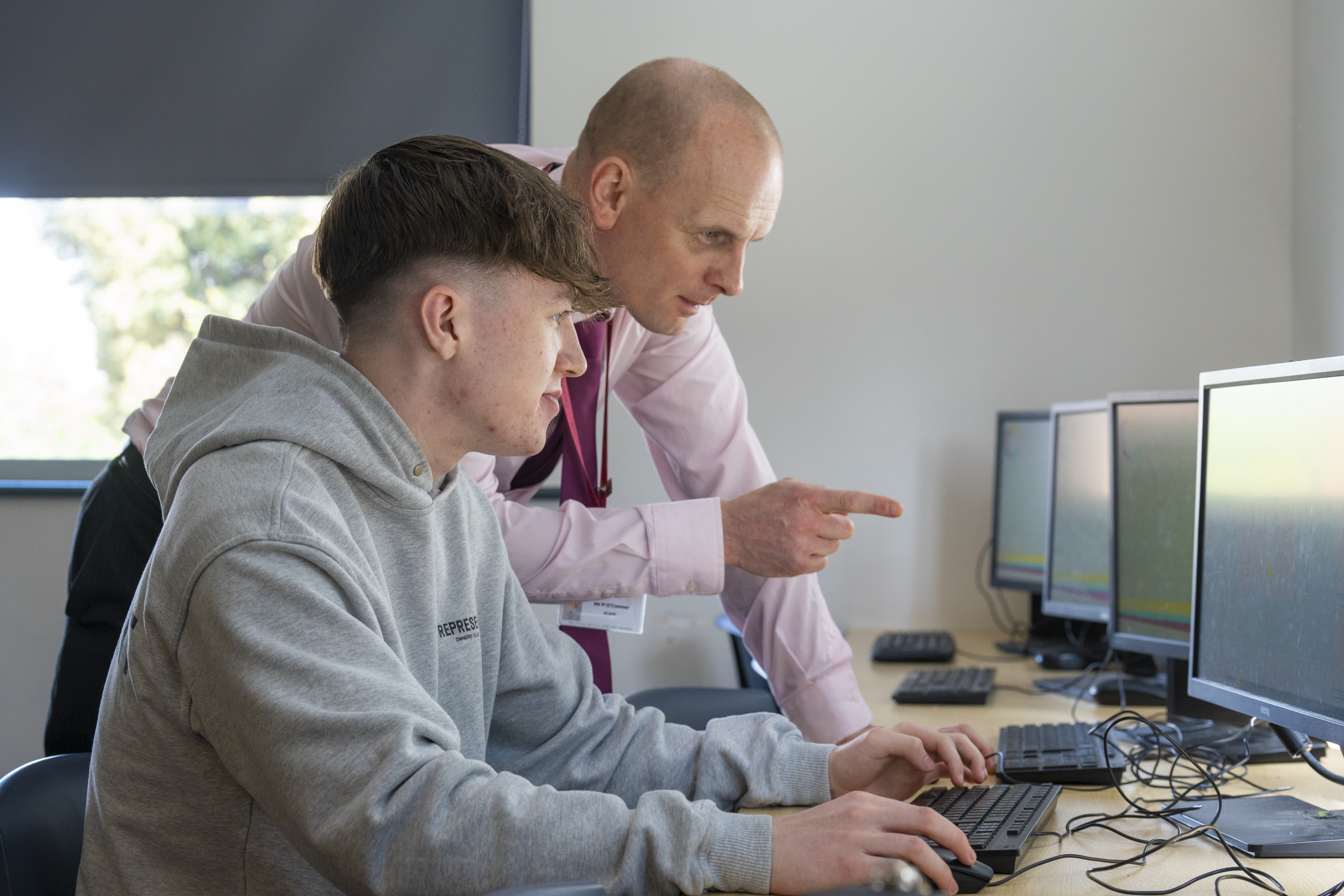Computing: App Development
The Extended Certificate in Computing: Application Development will give students an insight into how applications are designed and implemented, preparing them for progression to undergraduate study. It will equip students with the practical skills to analyse problems and develop accessible, effective applications.
You might be interested in this qualification if you want to apply what you learn to practical, real-life contexts, such as:
- Interpreting client requirements and documenting ideas.
- Planning and designing UX/UI solutions.
- Communicating UX/UI solutions to clients.
- Planning, designing and creating two different applications.
- Testing and reviewing created applications.
The qualification will also help you develop independence and confidence in using skills that are relevant to the sector and that prepare you for progressing to university courses where independent study skills are needed. You will develop the following transferable skills that can be used in both higher education and other life and work situations:
- Communicating effectively with individuals or groups. Communicating effectively with clients and other stakeholders is important in the ICT practitioners sector. It is also a vital life-skill and important for progressing to and in, higher education.
- Creativity. You will demonstrate creativity when exploring and generating ideas, making connections to find imaginative solutions and outcomes that are of value.
- Critical thinking and problem solving. You will explore the options, tools and techniques to tackle problems and use critical thinking skills to select the most appropriate way to proceed. You will plan and design solutions, checking the outcome to see if the problem has been resolved.
- Independent learning. You will spend time outside of lessons learning how to use different software packages to create solutions to problems.
- Time management. It is important both in higher education and the ICT practitioners sector that projects are delivered on time. You will learn how to use project planning tools to effectively plan projects.

| Course Information |
|---|
| Course Name: |
OCR Level 3 AAQ Cambridge Advanced National in Computing: Application Development (Extended Certificate) |
| Course Type: | Cambridge Advanced National |
| Examination/Coursework: |
2 exam units. 3 coursework units. Each of the 5 units is worth 20% of the final grade. |
|
Exam Board: |
OCR |
| Entrance Criteria: | Five GCSEs grades 5-9 |
| Topics & Areas Covered: |
|
|
Career Pathways: |
|
|
AS/A-Level: |
This can be studied as a one year course to gain the Certificate. |

